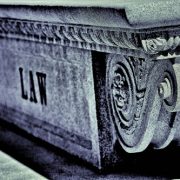Raised With Jesus
If then you were raised with Christ, seek those things which are above, where Christ is, sitting at the right hand of God. (Colossians 3:1)
If you are familiar with the letters of the Apostle Paul, you will recognize a familiar transition that happens at Colossians 3:1. In chapters 1 and 2 Paul wrote about all that Jesus has done for us. Only after establishing that foundation, Paul will now begin to write about how we should practically live the Christian life.
So as Paul began to focus on practical Christian living, he did it with the clear understanding that practical Christian living is built on the foundation of theological truth. That idea is strong in Colossians 3:1, telling us that because we know that Jesus is really raised from the dead, then our identification with Him becomes real. It is only because we were raised with Christ that we can seek those things which are above.

The idea of being raised with Christ was introduced back in Colossians 2:12, where Paul used baptism to illustrate this spiritual reality. Now, seeing that we are raised with Christ, certain behavior is appropriate to us. In the last few verses of Colossians 2 Paul reminded us that legalism doesn’t really help us to live right before God. Now Paul points us to what does help us to live right: walking in our identity with the risen Jesus.
Because we were raised with Christ, we should act just as Jesus did when He was resurrected.
After His resurrection, Jesus left the tomb. So should we – we don’t live in the tomb of our old life any longer.
After His resurrection, Jesus spent His remaining time being with and ministering to His disciples. So should we – we live our lives to be with and to serve one another.
After His resurrection, Jesus lived in supernatural power with the ability to do impossible things. So should we – we live with the power and the enabling of the Holy Spirit.
After His resurrection, Jesus looked forward to heaven, knowing He would soon enough ascend there. So should we – we always recognize that our citizenship is in heaven.
To emphasize it even more, Paul added the phrase, sitting at the right hand of God. That’s a place of victory and peace. Believer, that is your place in Jesus Christ. You are raised with Jesus; you are seated with Him in heavenly places. Now live that out!












